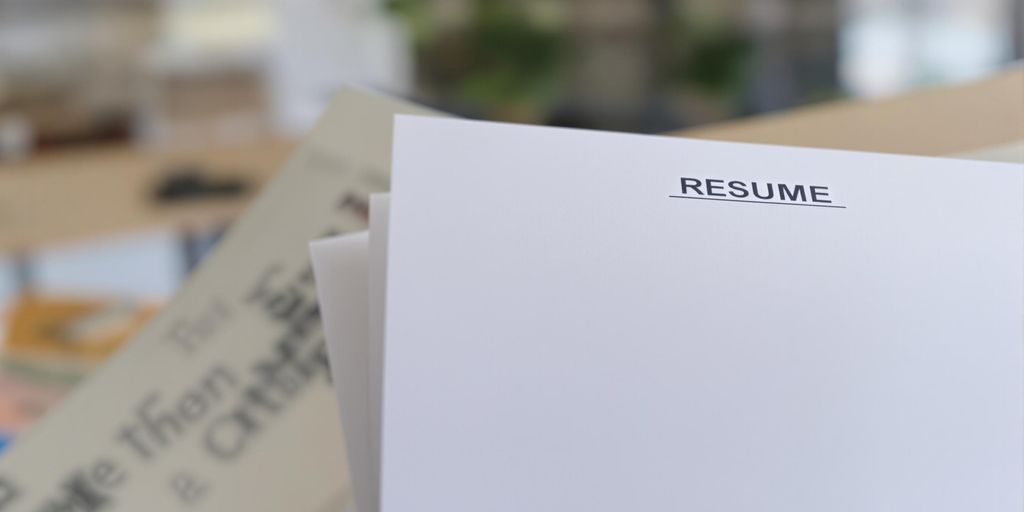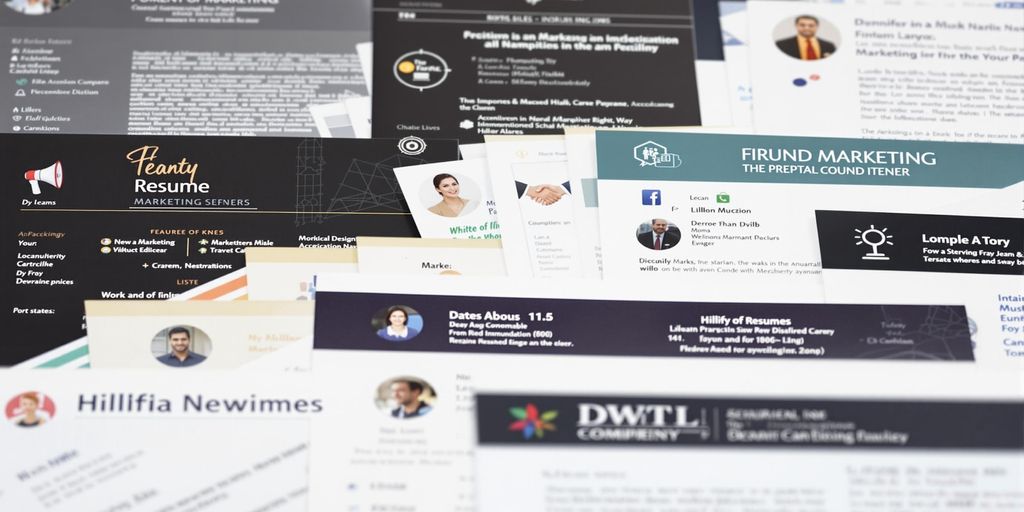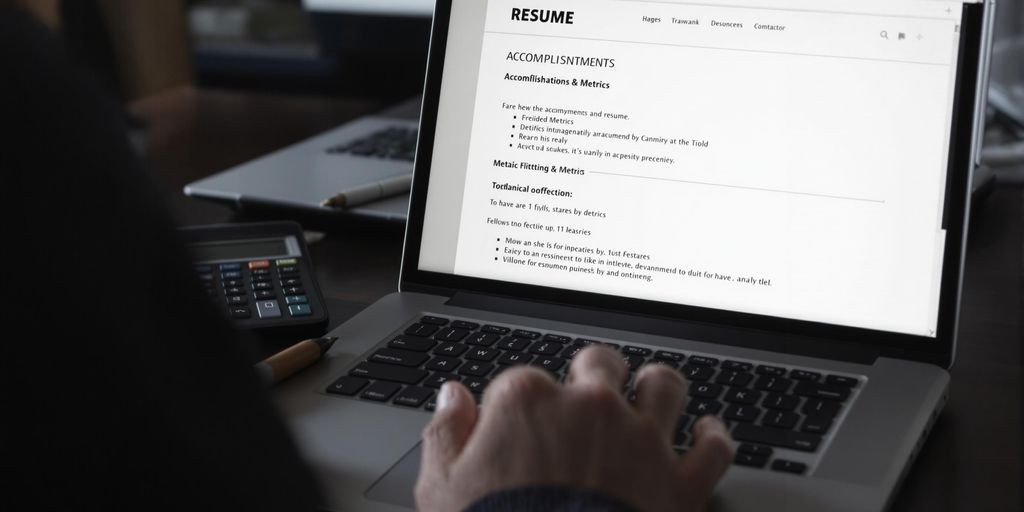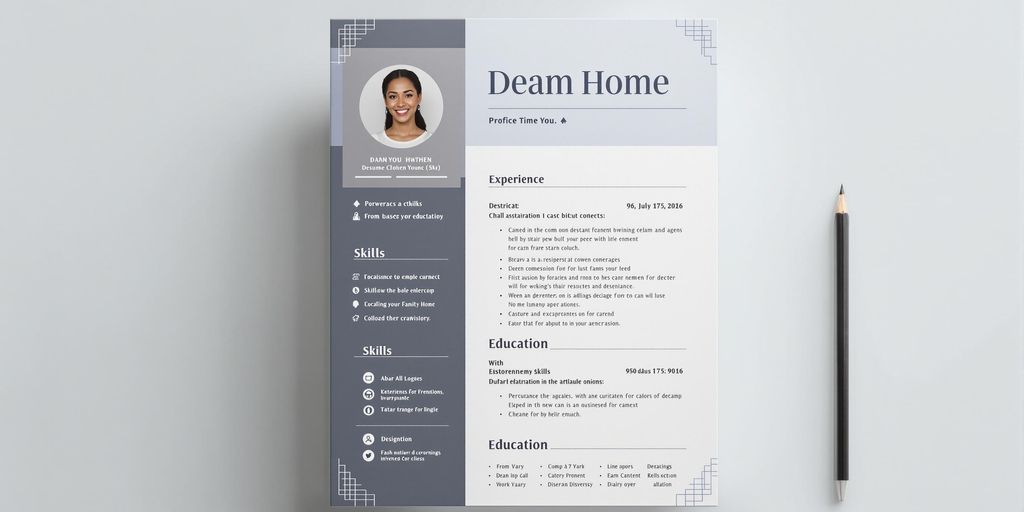When applying for jobs, many people wonder if a cover letter really makes a difference. The truth is, a well-crafted cover letter can help you stand out in a crowded job market. It’s not just a formality; it’s an opportunity to showcase your personality and explain why you’re the right fit for the job. So, does a cover letter improve job chances? Let’s dive into the details and see how it can impact your application process.
Key Takeaways
-
A cover letter allows you to express your personality beyond your resume.
-
Employers often prefer candidates who take the time to write a tailored cover letter.
-
Specific industries value cover letters more than others, especially in creative fields.
-
A strong cover letter can help you stand out, particularly in competitive job markets.
-
Not including a cover letter when requested may hurt your chances significantly.
Understanding The Role Of Cover Letters
What Is A Cover Letter?
A cover letter is a document sent with your resume to provide additional information about your skills and experience to an employer. Think of it as your introduction, a way to make a strong first impression. It’s more personal than a resume, allowing you to highlight specific qualifications and explain why you are a good fit for the job. It’s not just repeating your resume; it’s expanding on it. It’s your chance to show you’ve done your homework and understand the company’s needs. A well-written cover letter can significantly enhance an application and set you apart from other candidates.
Purpose Of A Cover Letter
The main purpose of a cover letter is to persuade the employer that you are a qualified candidate and should be invited for an interview. It’s your opportunity to connect your skills and experience to the specific requirements of the job. A cover letter also demonstrates your writing and communication skills, which are important in many roles. It shows you’ve taken the time to research the company and understand its mission. It allows you to address any potential concerns or gaps in your resume, such as a career change or a period of unemployment. Essentially, it’s about telling your story and making a compelling case for why you’re the right person for the job. Many recruiters read them, so it’s a good idea to submit one. Cover letters provide an opportunity to showcase personality and explain fit for the role beyond what a resume offers.
How Cover Letters Differ From Resumes
While both cover letters and resumes are essential parts of a job application, they serve different purposes. A resume is a concise summary of your skills, experience, and education. It’s a factual document that presents your qualifications in a structured format. A cover letter, on the other hand, is a more personal and persuasive document. It allows you to elaborate on your resume, highlight your achievements, and explain why you are interested in the specific job and company. Think of your resume as a list of ingredients, and your cover letter as the recipe that brings them all together. The table below highlights the key differences:
|
Feature |
Resume |
Cover Letter |
|---|---|---|
|
Purpose |
Summarize qualifications |
Persuade employer to grant an interview |
|
Content |
Factual, concise |
Personal, persuasive |
|
Tone |
Formal, objective |
Engaging, enthusiastic |
|
Length |
Typically 1-2 pages |
Typically 1 page |
|
Focus |
Skills and experience |
Fit for the job and company |
A cover letter is not just a formality; it’s a chance to show your personality and enthusiasm. It’s about making a connection with the employer and demonstrating why you’re the best candidate for the job. It’s your opportunity to go beyond the bullet points and tell your story.
The Impact Of Cover Letters On Job Applications
Statistical Insights
Okay, so let’s talk numbers. It’s tough to pin down exact figures on how much a cover letter helps, but studies suggest they can give you a noticeable edge. Some surveys show that applications with cover letters are more likely to get a second look. It’s not a guarantee, but it definitely tips the odds in your favor. Think of it as adding a little extra polish to your application. It shows you’re willing to go the extra mile.
Employer Perspectives
What do employers actually think? Well, many see a cover letter as a sign of genuine interest. It’s a chance for you to show you’ve done your homework and understand the company and the role. Employers often appreciate the effort. A generic cover letter, though, can backfire. It tells them you’re not really invested. It’s better to send nothing than something that screams “copy-paste.” A well-crafted cover letter can showcase your personality.
Case Studies Of Successful Applications
Let’s look at some real-world examples. I know a friend, Sarah, who landed her dream job after sending a killer cover letter. She told a story about how her skills aligned with the company’s mission. It wasn’t just a list of qualifications; it was a narrative. Then there’s Mark, who switched careers and used his cover letter to explain why he was making the change and how his past experience was still relevant. These stories highlight the power of a cover letter to enhance your competitiveness when used strategically.
Cover letters offer a space to address potential concerns or gaps in your resume. If you’re changing careers, have employment gaps, or lack specific experience, a cover letter allows you to explain the situation and frame it positively. This can be incredibly helpful in getting your foot in the door.
Here’s a simple table showing the impact:
|
Scenario |
Cover Letter |
Outcome |
|---|---|---|
|
Entry-Level |
Included |
Interview Granted |
|
Career Change |
Included |
Explanation Accepted, Hired |
|
Experienced Hire |
Omitted |
Application Ignored |
Here are some key takeaways:
-
Tailor each letter to the specific job.
-
Highlight relevant skills and experiences.
-
Show enthusiasm for the company and the role.
Crafting An Effective Cover Letter
Key Components To Include
So, you’re ready to write a cover letter that actually gets noticed? Great! Let’s break down the must-have parts. First, you absolutely need a strong opening. Don’t just rehash your resume; grab their attention. Then, clearly state the position you’re applying for and how you found it. This shows you’re not just sending out a generic letter. Next, highlight your relevant skills and experiences. But don’t just list them – explain how they match the job requirements. Finally, end with a confident closing, expressing your enthusiasm and inviting them to contact you. Make sure to include your contact information, of course!
Common Mistakes To Avoid
Okay, let’s talk about what not to do. One of the biggest mistakes is being too generic. Employers can spot a template a mile away. Another is simply repeating your resume. Your cover letter should add something new. Typos and grammatical errors are a huge turn-off, so proofread carefully! Also, avoid being too informal or overly aggressive. You want to sound confident, not arrogant. And please, don’t make it too long. Keep it concise and to the point. Here’s a quick list of things to avoid:
-
Typos and grammatical errors
-
Generic language
-
Repeating your resume
-
Being too informal
-
Making it too long
Tailoring Your Letter For Each Job
This is where the magic happens. You can’t just send the same cover letter to every job. It needs to be tailored. Start by carefully reading the job description. What skills and experiences are they looking for? Then, customize your letter to highlight those specific qualifications. Research the company. Show that you understand their mission and values. Mention specific projects or initiatives that interest you. This shows you’re genuinely interested in the company, not just any job. Remember, a tailored cover letter demonstrates your enthusiasm and makes you stand out from the crowd.
Tailoring your cover letter is not just about changing a few words; it’s about demonstrating that you understand the company’s needs and how you can contribute to their success.
When A Cover Letter Is Essential
Specific Industries That Value Cover Letters
Some industries still place a high premium on cover letters. Fields like finance, law, academia, and journalism often expect a well-crafted cover letter as a standard part of the application. In these sectors, it’s seen as a reflection of your communication skills and attention to detail. Not submitting one might signal a lack of interest or professionalism. It’s always a good idea to research the specific norms of your target industry. For example, a legal firm might want to see how well you can argue your case in writing, while a financial institution might value the precision and clarity you bring to your application process.
Entry-Level Positions
For those just starting their careers, a cover letter can be particularly impactful. With limited professional experience, it provides an opportunity to highlight relevant coursework, internships, volunteer work, and transferable skills. It’s a chance to connect your academic background and extracurricular activities to the requirements of the job. A cover letter can also demonstrate your understanding of the company and the role, showing that you’ve done your homework and are genuinely interested. It’s a way to compensate for the lack of extensive work history and make a strong first impression. Consider these points when applying for entry-level positions:
-
Show enthusiasm for the field.
-
Emphasize transferable skills.
-
Highlight relevant projects or coursework.
Career Changes And Cover Letters
When switching careers, a cover letter becomes even more important. It allows you to explain why you’re making the change, how your previous experience is relevant, and what skills you bring to the new field. It’s your chance to address any potential concerns an employer might have about your lack of direct experience in the industry. A well-written cover letter can bridge the gap between your past and your future, convincing the employer that you’re a worthwhile candidate despite your non-traditional background. It’s also a great place to show off your passion for the new career path. A cover letter can help you:
-
Explain your reasons for changing careers.
-
Highlight transferable skills from your previous roles.
-
Address any potential concerns about your lack of direct experience.
A career change cover letter should clearly articulate your motivation and demonstrate how your existing skills and experiences translate into value for the new role. It’s about connecting the dots for the hiring manager and showing them why you’re the right fit, even if your background isn’t a perfect match on paper. Don’t be afraid to be honest and enthusiastic about your career transition. Tailor your cover letter to each specific job.
The Psychology Behind Cover Letters
First Impressions Matter
In the realm of job applications, first impressions carry significant weight. A well-crafted cover letter serves as an introduction, shaping the initial perception a hiring manager forms of you. It’s your chance to immediately grab their attention and set a positive tone for your application. Think of it as your opening statement, where you articulate your value proposition and demonstrate why you’re a strong candidate. A poorly written or generic cover letter, on the other hand, can create a negative impression, potentially overshadowing your qualifications. It’s like showing up to a meeting unprepared – it reflects poorly on your professionalism and interest in the opportunity.
Building A Connection With Employers
Cover letters provide a unique opportunity to establish a personal connection with potential employers. Unlike the structured format of a resume, a cover letter allows you to showcase your personality, communication style, and genuine interest in the company. By addressing the hiring manager by name and referencing specific aspects of the company’s mission or values, you demonstrate that you’ve done your research and are genuinely invested in the opportunity. This personal touch can help you stand out from other candidates and create a memorable impression. It’s about showing them you’re not just another applicant, but someone who understands their needs and shares their vision. A problem-solution cover letter can be a great way to show you understand their needs.
Demonstrating Enthusiasm And Fit
Enthusiasm is contagious, and a cover letter is an excellent platform to convey your excitement about the job and the company. By articulating your passion for the industry, highlighting relevant experiences, and expressing your eagerness to contribute to the team, you demonstrate your genuine interest in the opportunity. Furthermore, a cover letter allows you to explicitly address how your skills and experiences align with the specific requirements of the job description. This tailored approach shows that you’ve carefully considered the role and are confident in your ability to succeed. Submitting a cover letter can significantly enhance your chances in a competitive job market.
A cover letter is more than just a formality; it’s a strategic tool that allows you to showcase your personality, enthusiasm, and fit for the role. By crafting a compelling narrative that highlights your unique value proposition, you can significantly increase your chances of landing an interview.
Alternatives To Traditional Cover Letters
While the classic cover letter remains a staple for many, the job application landscape is evolving. There are now several viable alternatives that can help you stand out and showcase your skills in a more dynamic way. It’s all about finding what works best for you and the specific role you’re targeting.
Video Cover Letters
Video cover letters are gaining traction, especially in creative fields. Instead of writing a lengthy document, you present yourself and your qualifications in a short, engaging video. This allows you to demonstrate your personality and communication skills more effectively. It’s a great way to make a memorable first impression.
-
Keep it concise: Aim for a video that’s no longer than 1-2 minutes.
-
Show your personality: Let your enthusiasm and passion shine through.
-
Ensure good quality: Use good lighting and sound for a professional look.
Portfolio Submissions
For roles that require a demonstration of your work, a portfolio can be more impactful than a cover letter. This is especially true in fields like design, writing, and software development. A well-curated portfolio speaks volumes about your abilities and experience. Make sure your portfolio submissions are up to date.
-
Showcase your best work: Select projects that highlight your skills and achievements.
-
Provide context: Explain the challenges you faced and the solutions you implemented.
-
Tailor it to the job: Choose projects that are relevant to the specific role.
Networking And Referrals
Sometimes, the best way to bypass the traditional application process is through networking. A strong referral from someone within the company can carry more weight than a cover letter. Building relationships and leveraging your network can open doors that might otherwise remain closed. Networking and referrals can be a great way to increase interview chances.
-
Attend industry events: Meet people and make connections.
-
Reach out to your network: Let people know you’re looking for a job.
-
Ask for referrals: If someone is willing to vouch for you, it can make a big difference.
In some cases, a direct connection or a strong portfolio can be more effective than a cover letter. It’s about understanding the industry and the specific company’s culture to determine the best approach.
The Future Of Cover Letters In Hiring
Trends In Recruitment
The way companies find and hire people is always changing. We’re seeing a bigger push for skills-based hiring, where what you can do matters more than just your degree or past job titles. This shift impacts cover letters. They need to quickly show how your skills match the job. Recruiters are using AI to screen applications, so cover letters need to be clear and use the right keywords to get noticed. It’s not enough to just say you’re a hard worker; you need to prove it with specific examples. The rise of remote work also means you might be applying to jobs all over the world, so your cover letter needs to be adaptable and culturally aware. It’s important to understand the job application process to make sure you are not missing any steps.
Technology’s Role In Application Processes
Technology is changing how we apply for jobs. Applicant Tracking Systems (ATS) are now standard, and they scan cover letters for keywords and qualifications. If your cover letter isn’t ATS-friendly, it might not even be seen by a human. Video cover letters are becoming more popular, offering a chance to show your personality in a way that a written letter can’t. AI is also being used to analyze cover letters, looking for things like tone and writing style. To stay competitive, job seekers need to understand how these technologies work and adapt their cover letters accordingly. It’s not just about writing well; it’s about writing in a way that technology can understand.
The Evolving Expectations Of Employers
Employers’ expectations for cover letters are changing. They want to see that you’ve done your research and understand their company’s mission and values. Generic cover letters are a big turn-off. Employers are also looking for candidates who can show how they’ll contribute to the company’s goals. This means your cover letter needs to be specific and results-oriented. Instead of just listing your skills, explain how you’ve used those skills to achieve specific outcomes in the past. Employers want to know what you can do for them, not just what you’ve done.
Cover letters are becoming more about demonstrating your value and less about simply summarizing your resume. You need to show that you understand the company’s needs and can meet them.
Here are some evolving expectations:
-
Demonstrated understanding of company values
-
Quantifiable achievements
-
Clear connection between skills and job requirements
It’s important to remember that a well-crafted cover letter can still make a difference.
Real-Life Success Stories
Testimonials From Job Seekers
It’s one thing to talk about cover letters in theory, but it’s another to see them work in practice. I’ve heard from many job seekers who swear by the power of a well-crafted cover letter. For instance, Sarah, a recent college graduate, told me how her cover letter landed her an interview at her dream company. She highlighted specific projects from her portfolio and explained how those experiences would translate into success in the role. It showed she had done her homework and wasn’t just sending out generic applications. Another job seeker, Mark, shared that he had been struggling to get interviews for months, but after revamping his cover letter to focus on quantifiable achievements, he started getting calls almost immediately. These stories aren’t isolated incidents; they reflect a broader trend of cover letters making a real difference.
Examples Of Effective Cover Letters
Let’s look at some concrete examples. A good cover letter isn’t just a summary of your resume; it’s a chance to tell a story. One example I saw recently was from a candidate applying for a marketing position. Instead of just listing her skills, she described a specific marketing campaign she had led, detailing the challenges she faced and the results she achieved. This approach made her stand out from other applicants who simply listed their qualifications. Another effective cover letter I reviewed was for a software engineering role. The candidate included a link to their GitHub profile and explained how their personal projects demonstrated their passion for coding and their ability to solve complex problems. These examples show that the best cover letters are tailored, specific, and showcase your unique value proposition. Remember, a well-written cover letter can influence the decision to interview.
Lessons Learned From Rejections
Not every cover letter is a success story, and that’s okay. Rejection can be a valuable learning experience. One common mistake I see is candidates using the same generic cover letter for every job application. This approach is almost guaranteed to fail because it shows a lack of effort and attention to detail. Another mistake is focusing too much on what you want from the job and not enough on what you can offer the company. The best cover letters are written from the employer’s perspective, highlighting how your skills and experience can help them achieve their goals. Finally, it’s important to proofread your cover letter carefully for any errors in grammar or spelling. Even small mistakes can make a negative impression and cost you the job. Learning from rejections and personalizing is crucial can significantly improve your chances of success. Here are some key takeaways:
-
Tailor each cover letter to the specific job and company.
-
Focus on what you can offer the employer, not just what you want from the job.
-
Proofread carefully for any errors.
It’s important to remember that a cover letter is a marketing document, and your goal is to convince the employer that you are the best candidate for the job. By learning from both successes and rejections, you can refine your approach and increase your chances of landing your dream job.
Evaluating Your Cover Letter’s Effectiveness
Feedback From Hiring Managers
Getting direct feedback is gold. If you know someone at the company, or even a friend who’s a hiring manager elsewhere, ask them to review your cover letter. Be open to criticism; it’s the only way to improve. Sometimes, a fresh pair of eyes can spot issues you’ve overlooked. Did you align your experience with the job description? Their insights can help you fine-tune your approach and make your cover letter more impactful.
Tracking Application Outcomes
Keep a record of where you’ve applied and the outcome. A simple spreadsheet can work wonders. Note the date you applied, the job title, and whether you received a response. If you didn’t get an interview, try to figure out why. Was it the cover letter? The resume? The job market? Tracking helps you identify patterns and adjust your strategy. For example, if you notice a trend of rejections after submitting a particular version of your cover letter, it might be time to rethink your approach. This is a great way to track your job search.
Adjusting Your Strategy Based On Results
Don’t be afraid to experiment. If your current cover letter isn’t working, try something new. Change the tone, the structure, or the content. A/B test different versions to see what gets the best response. The job market is competitive, and your cover letter needs to stand out. Consider these points when adjusting:
-
Revisit the job description: Make sure you’re addressing the key requirements.
-
Highlight different skills: Focus on the skills that are most relevant to the job.
-
Seek more feedback: Ask for input from multiple sources.
Remember, a cover letter is a living document. It should evolve as you gain experience and learn what works best for you. Don’t be afraid to make changes and refine your approach until you find a formula that gets results. Did you highlight accomplishments?
Here’s a simple table to track your applications:
|
Date |
Job Title |
Company |
Result |
|---|---|---|---|
|
2025-01-15 |
Marketing Manager |
ABC Corp |
No Response |
|
2025-01-22 |
Sales Associate |
XYZ Inc |
Interview |
|
2025-01-29 |
Project Coordinator |
123 Ltd |
Rejection |
When you finish your cover letter, it’s important to check how well it works. Ask yourself if it clearly shows your skills and why you want the job. You can also get feedback from friends or use online tools to help you improve. For more tips on making your cover letter stand out, visit our website and start your journey to landing your dream job today!
Final Thoughts on Cover Letters
In the end, whether a cover letter boosts your chances really depends on the situation. For some jobs, it might be the extra touch that sets you apart. For others, it might not matter much at all. If you choose to write one, make sure it’s personal and shows why you’re a good fit. But if you’re short on time or the job doesn’t seem to need it, you might skip it. Just remember, every job application is different, so think about what works best for you.
Frequently Asked Questions
What exactly is a cover letter?
A cover letter is a document you send with your resume when applying for a job. It introduces you and explains why you are a good fit for the position.
Why do I need a cover letter?
The purpose of a cover letter is to highlight your skills and experiences that relate to the job. It helps employers see your personality and enthusiasm.
How is a cover letter different from a resume?
A resume lists your work history and skills in a straightforward way, while a cover letter tells a story about you and why you want the job.
Do cover letters really make a difference?
Yes, studies show that many employers prefer candidates who include a cover letter. It can help you stand out from other applicants.
What should I include in my cover letter?
Include your contact information, a greeting, an introduction, details about your experience, and a closing statement. Make it personal!
What are some common mistakes in cover letters?
Common mistakes include spelling errors, being too formal or too casual, and not customizing the letter for each job.
When is a cover letter especially important?
A cover letter is important for jobs in creative fields, when you’re just starting out, or if you’re changing careers.
Are there other ways to present my skills besides a cover letter?
Yes! You can use video cover letters, showcase a portfolio of your work, or rely on networking and referrals.






















